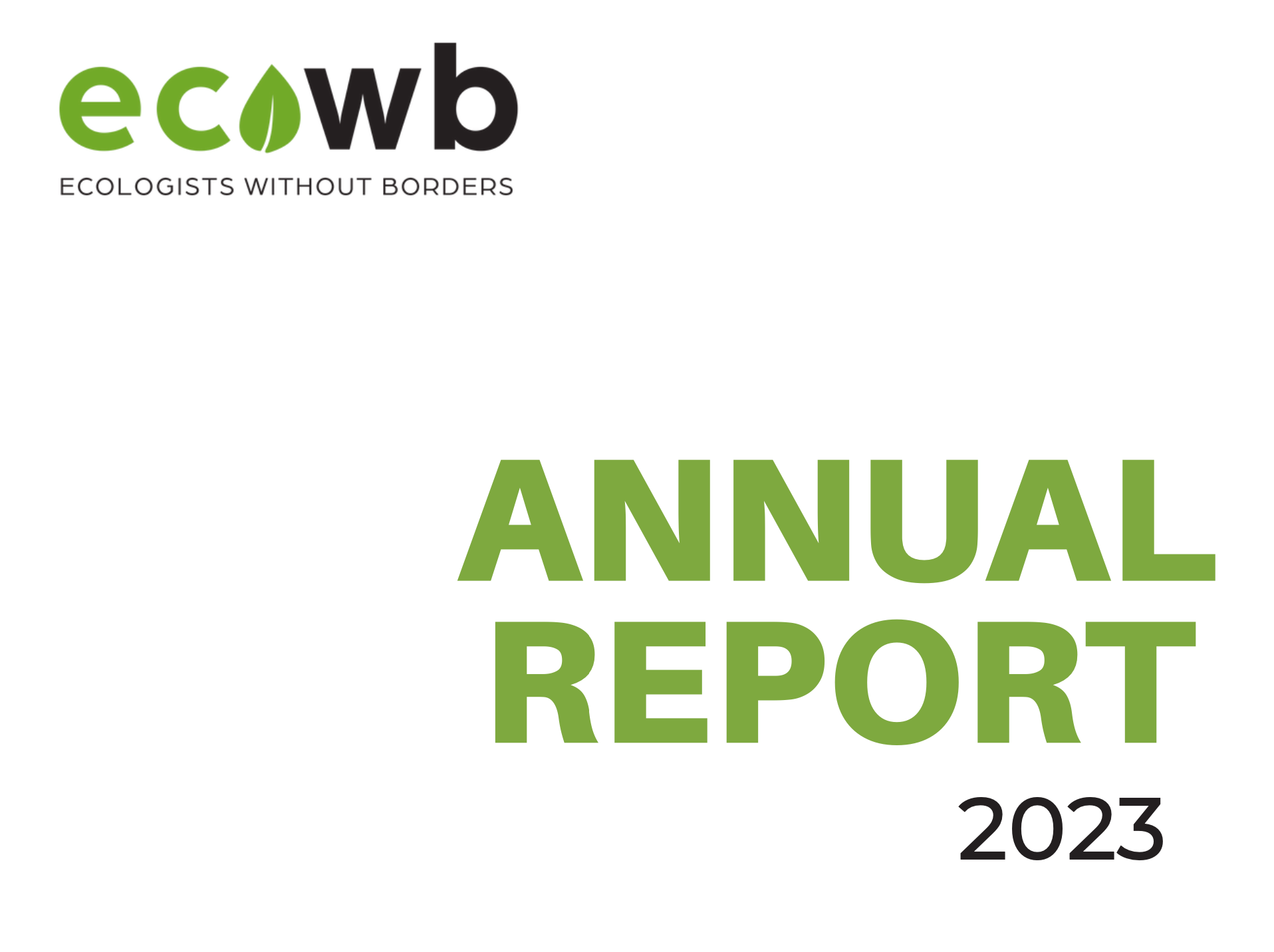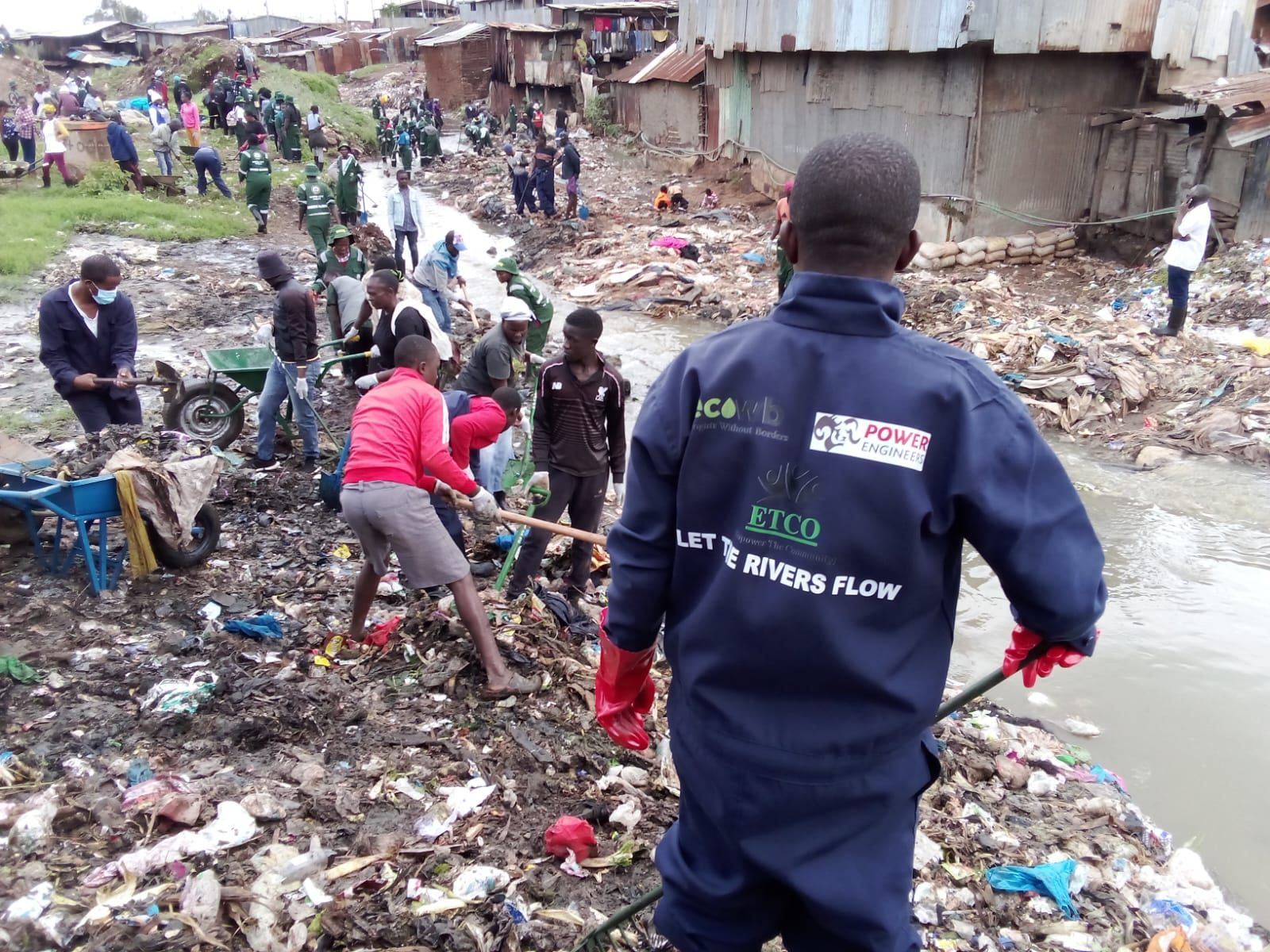News & Events

Job Title: Program Manager Location: Remote Organization: Ecologists Without Borders Hours: Part-Time (10-20 hrs per week) Term: Through December 31, 2025 (renewal possible, subject to funding) Compensation: Subject to grant funding availability and applicant’s level of experience About Us Ecologists Without Borders (EcoWB) is dedicated to environmental conservation and community-led sustainable development. We work globally to implement impactful projects that address ecological challenges, empower local communities, and promote long-term environmental resilience. Position Summary EcoWB is seeking an organized and proactive Program Manager to oversee ongoing environmental projects, develop new projects in collaboration with environmentally vulnerable communities worldwide and expand partnerships that align with our mission. This is a fully remote position and no travel is anticipated as part of this position. The ideal candidate has nonprofit environmental work experience, strong communication and organizational skills, and a passion for conservation and community development in an international setting. This role provides a hands-on opportunity to expand EcoWB’s project program, both internally and externally through engagement with potential partner organizations and supporting EcoWB Volunteer Project Managers, while contributing meaningfully to EcoWB’s mission. Key Responsibilities Project Program Management: Working with EcoWB Volunteer Project Managers, monitor and support ongoing environmental projects around the world, ensuring successful outcomes. Develop and implement recruitment and training for new EcoWB Volunteer Project Managers, and coordinate assistance to resolve project issues as needed. Actively participate in EcoWB Projects Committee monthly meetings, participate in reviewing and scoring of project proposals, and present recommendations for new projects to the Board for approval. Project Program Development: Identify opportunities for new environmental projects in cooperation with local community partners, design initiatives, and coordinate their launch. Develop and propose project program policies and procedures in coordination with the Project Committee. Outreach & Partnerships: Build relationships with international community organizations, businesses, government agencies, and other stakeholders to expand our programs and reach. Volunteer Engagement: Work with the Volunteer Coordinator to engage and recruit EcoWB volunteers in project activities. Grant & Funding Support: With the support of the Development Director, assist in identifying and applying for grants and funding opportunities to support ongoing projects and program growth. Assist Project Managers with providing project descriptions and success stories to the Marketing and Communications Committee and Development staff to illustrate EcoWB’s story through specific impacts. Monitoring & Reporting: Track Project Program impact through monthly, annual, and grant-specific reports, maintain detailed records, and communicate results. Minimum Qualifications & Skills Passion for environmental conservation and community-led sustainable development. Experience in nonprofit work, environmental initiatives, international development, and/or project coordination. Familiarity with norms and standards for international development. Basic budget management experience (or willingness to learn). Strong organizational and leadership skills. Excellent communication and relationship-building abilities. Ability to work independently and collaboratively in a remote work environment. Proficiency in Microsoft Office (Word, Excel, Outlook), videoconferencing, and basic project management tools. Professional proficiency in written and spoken English. Preferred Additional Qualifications & Skills Familiarity with fundraising or grant writing. Experience with environmentally vulnerable communities. Experience tracking project impacts and reporting outcomes. Experience working with volunteers from a range of backgrounds and community organizations. What We Offer Opportunity to lead and expand meaningful environmental project program. Flexible remote work schedule (with availability during normal U.S. business hours). Opportunity to work with highly motivated volunteers and help communities around the world address environmental challenges. How to Apply Interested candidates should submit a resume and a brief cover letter outlining their experience and interest to HR@ecowb.org . In the cover letter, please include your expected salary or hourly rate for the position. Applications will be accepted through March 21, 2025 and reviewed in the order received until one or more acceptable candidates are found. On the basis of the information submitted, promising applicants will be interviewed by members of EcoWB’s review team. Work is expected to begin early to mid-April.
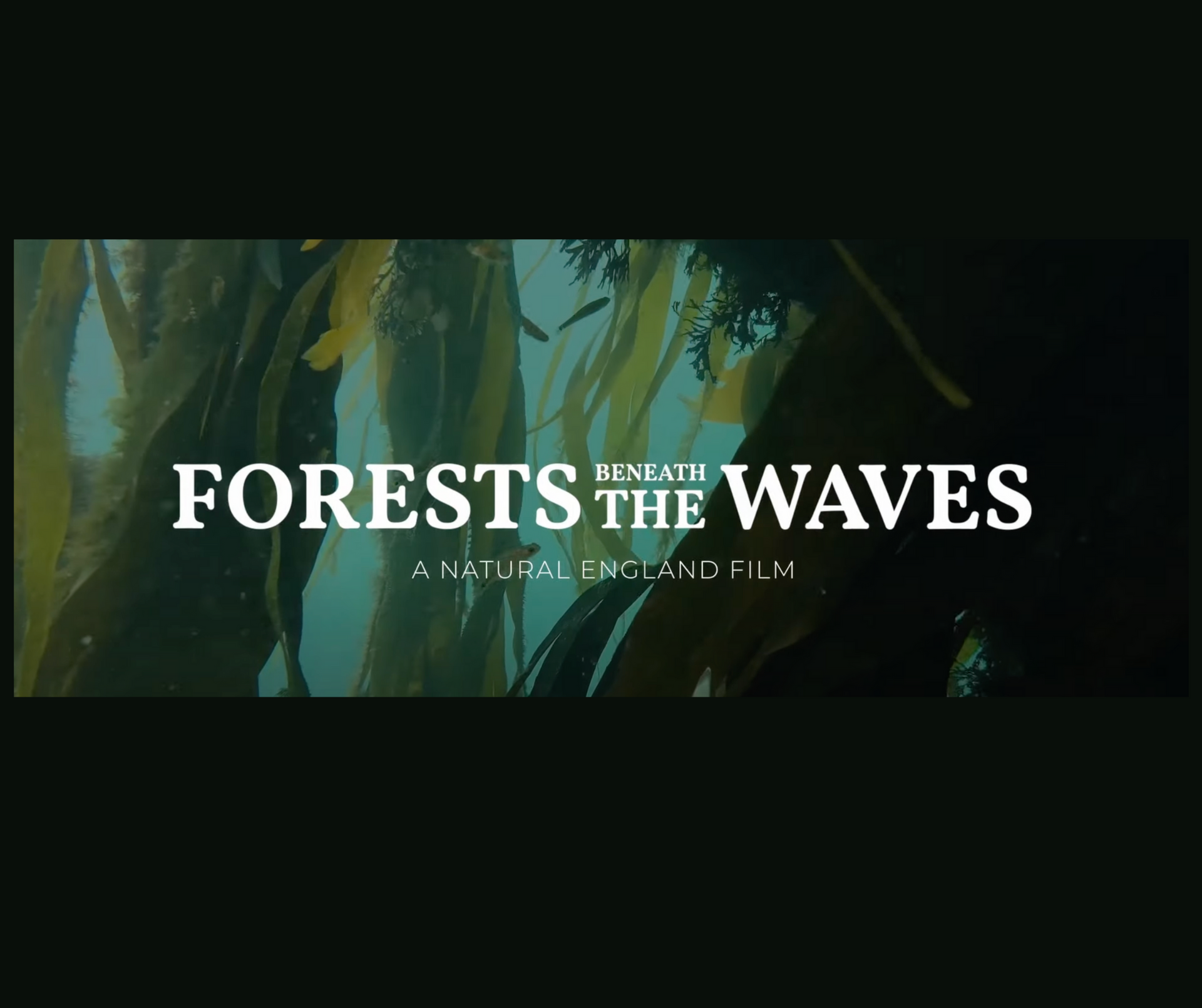
EcoWB’s Technical Advisor, Dr. Ian Hendy, has helped bring the mysteries of the UK’s underwater forests to life in a stunning new documentary, Forests Beneath the Waves. Commissioned by Natural England and produced by a team of filmmakers led by Dr. Hendy from the University of Portsmouth’s Institute of Marine Sciences (IMS), the film offers a rare and breathtaking look at the kelp forests surrounding the Isle of Wight, Devon, and Cornwall. Kelp forests are some of the most productive habitats on the planet, supporting a vast array of marine life and playing a crucial role in mitigating climate change. The documentary, now available on YouTube, highlights the importance of these ecosystems and the threats they face. “When Natural England approached me to make this exciting film, I was thrilled. I immediately realized the significance and impact this could have for policy, protection, and outreach,” said Dr. Hendy. “We encountered everything from beautiful sharks, stunning juvenile rays, mesmerizing cuttlefish, and even tuna fish! The vibrant life in our UK kelp forests rivals that of tropical coral reefs.” The film captures a hidden world beneath the waves, showing undulate rays and gobies sheltering from predators, a nursehound shark securing her egg, and a seal hunting for food. These forests provide essential nursery grounds and shelter for marine species, while also buffering coastlines from storms, increasing oxygen levels, and absorbing carbon dioxide. Despite their resilience, kelp forests are under serious threat from warming oceans, pollution, coastal development, and overfishing. Their decline is already being observed in the UK, making conservation efforts—and awareness—more urgent than ever. “Climate change is a big factor,” said Marina Rees, Marine Higher Officer at Natural England. “I have witnessed the increase of bleached kelp during heat waves, and escalating storms destroying entire parts of kelp forests. In the film, we even captured the crystal jellyfish—normally found in the Pacific—now appearing in UK waters due to rising temperatures.” With its stunning visuals and powerful message, Forests Beneath the Waves showcases why protecting these ecosystems matters—not just for marine life, but for the planet as a whole. Watch the full documentary here: https://www.youtube.com/watch?v=0iOQSjtVsLs
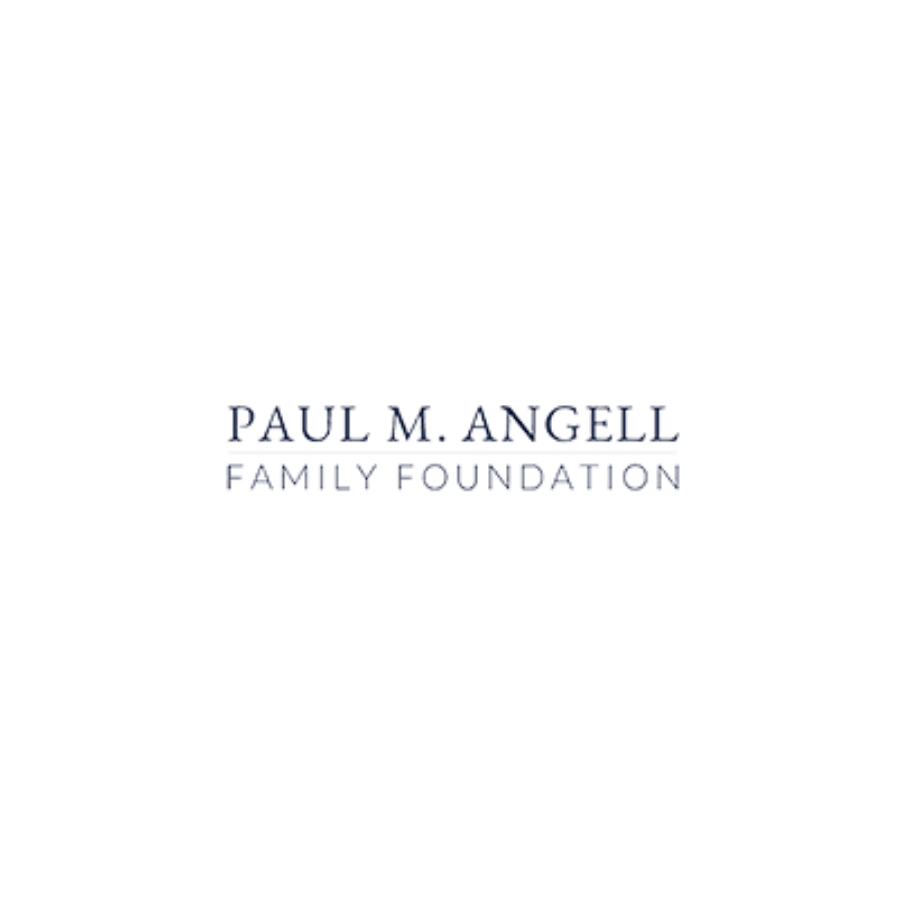
We are thrilled to announce that the Paul M. Angell Family Foundation has awarded Ecologists Without Borders (EcoWB) a $150,000 capacity-building grant to be distributed over the next two years. This incredible support follows a $50,000 grant from the Foundation last year, which helped us make significant strides in strengthening our organization. This renewed and increased commitment is more than just financial backing—it’s a profound vote of confidence in the work we do. It shows that the Paul M. Angell Family Foundation believes in the impact EcoWB has made so far and sees the potential for us to grow and evolve. While volunteers will always be at the heart of everything we do, this grant helps us build the dedicated team of staff we need to meet the growing demands for our work and make an even greater impact. What Does This Grant Mean for EcoWB? This funding will help us build a strong foundation for EcoWB’s future, allowing us to plan thoughtfully and grow in a sustainable, meaningful way. Here’s how: • Laying a Solid Foundation The grant will enable us to build strength behind the scenes, refining the systems and securing the expertise needed to keep EcoWB running smoothly. By bolstering our internal capacity, we can deliver more for the communities that rely on us. • Answering the Call With the Paul M. Angell Family Foundation’s support, we can respond faster and more effectively to urgent environmental challenges. From fundraising and coordinating volunteers to managing complex projects, this funding will ensure we’re ready to act when we’re needed most. • Growing Sustainably This investment isn’t just about today—it’s about tomorrow. By focusing on long-term growth, we’re ensuring EcoWB remains a trusted, reliable partner for communities working to protect their environment for generations to come. Reflecting on Last Year’s Success The $50,000 grant we received last year laid the groundwork for the exciting progress we’re making today. With the Paul M. Angell Family Foundation’s support, we were able to bring on a Development Director, who helped shape a clear strategy for fundraising, introduced systems to better manage our relationships with donors and volunteers, and launched our first-ever year-end fundraising campaign. We also worked to refine EcoWB’s public profile, updating our messaging and website to better reflect the impact of our work and connect with our growing community. This progress would not have been possible without the Paul M. Angell Family Foundation’s belief in our potential, and their continued support builds on the success of their initial grant, allowing us to achieve even greater impact. A Bright Future Ahead The Paul M. Angell Family Foundation grant signals an exciting new phase for EcoWB. It demonstrates not only the Foundation’s belief in our work but also the value of collaborative, community-driven approaches to environmental challenges. As we look to the future, we see a stronger, more connected EcoWB—one that can rise to meet the growing ecological needs of communities around the world. We extend our deepest gratitude to the Paul M. Angell Family Foundation for their generosity and trust. Together, we’re proving that when communities and ecologists come together, we can create solutions that truly make a difference. Stay tuned for updates on how this transformative funding shapes EcoWB’s next chapter!
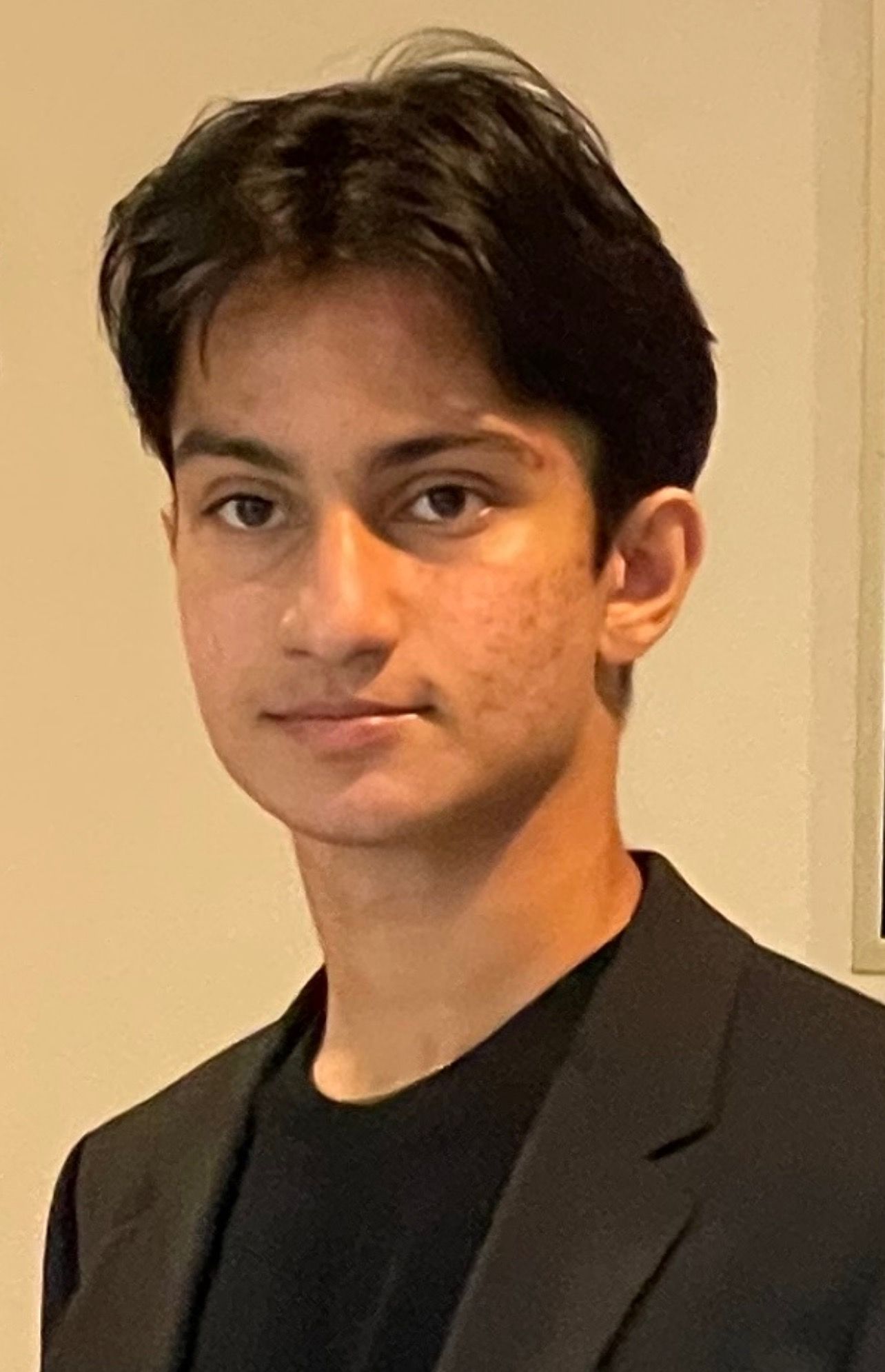
Developments in AI are already changing all aspects of digital work and EcoWB is no exception. As a remote organization led by volunteers, we are often struggling to find the time to help new and active members understand our organization and how to get involved. Aryan Sahai, a high school junior from Seattle with a passion for using technology to make a difference understood this experience and was able to create an innovative solution for volunteer training with AI. Aryan has harnessed the power of artificial intelligence (AI) by developing a Chat GPT-based app that active volunteers can talk to learn more about all things EcoWB. The app was trained on EcoWB core documents and hosted on a user friendly cloud based platform that will allow us to continue it’s development. Aryan worked with EcoWB Vice President, Trevor Eakes, over multiple iterations that improved user friendliness and security. His innovation will get volunteers up to speed more quickly and efficiently, a constant need for our fast growing teams. As a student at Skyline High School, Aryan is modeling how talented young people can be transformative in the wider environmental movement. His contributions to Ecologists Without Borders reflect his broader passion for science and technology. Alongside his work with us, Aryan has participated in a range of research projects, including developing AI models for pneumonia detection, promoting cybersecurity awareness, and even taking part in NASA’s Artemis ROADS challenge. We are very grateful for Aryan's contributions and happy to count him as an EcoWB volunteer. Thank you, Aryan, for your dedication and innovation! We look forward to seeing all that you continue to accomplish. Stay tuned to learn more about our volunteers and how they are helping to support environmental conservation efforts around the world.
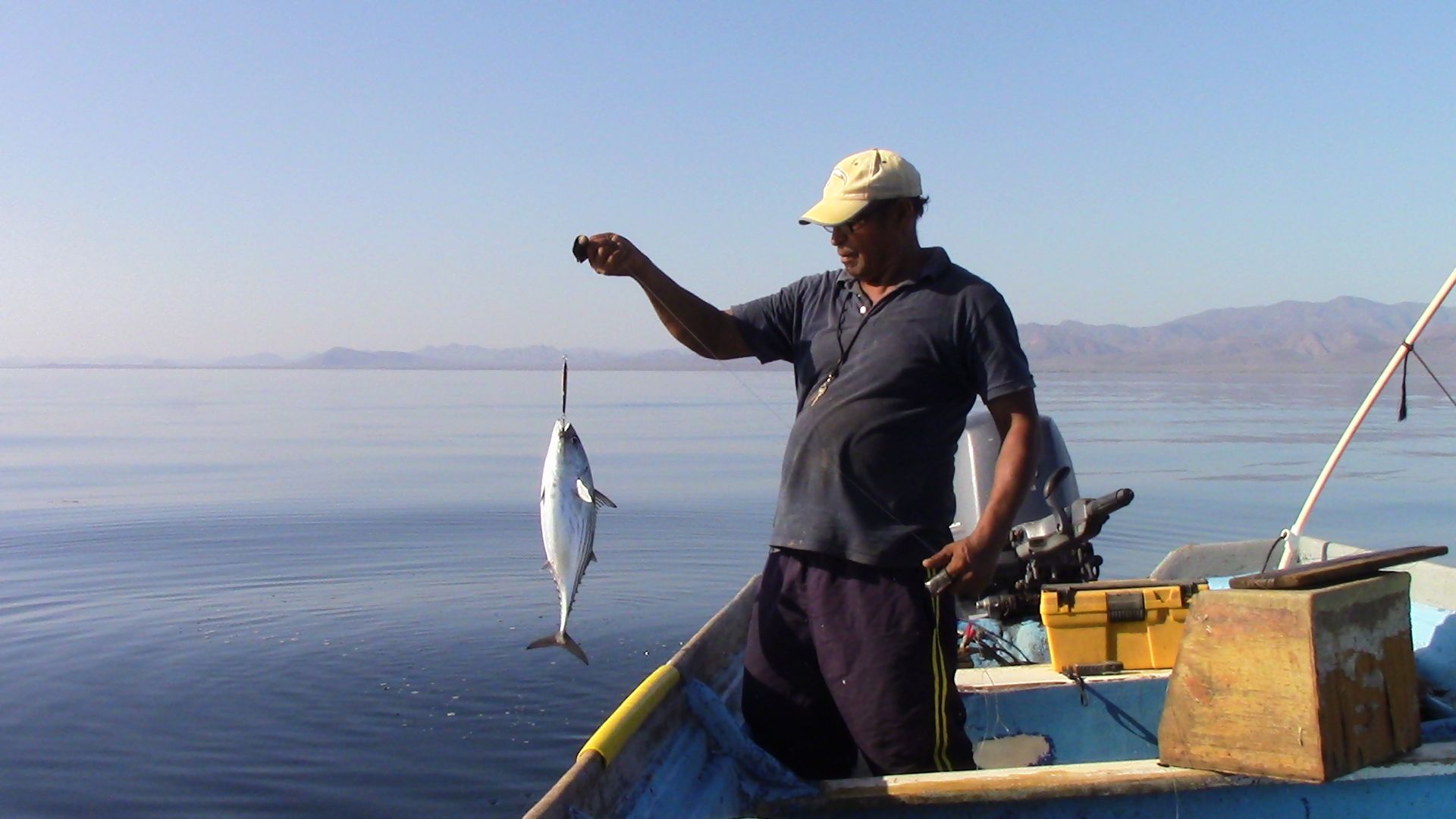
“Canelo” Rogelio Silva is an artisanal fisherman from Santa Rosalia, Mexico – a French-steeped “Pueblo Magico” situated on the Gulf of California halfway down the Baja peninsula. The wiry 59-year-old, nicknamed for his cinnamon-red hair, is easy to converse with but doesn’t hold back when it comes voicing opinions about his work, his colleagues, and the state of the world in general. During our conversation, Canelo expressed his displeasure about the current status of the artisanal fishery he participates in. “What is wrong”, he tells us, “are the commercial sardine boats that run their nets too close to shore, sweeping up other fish in the process. And the buyers” – his voice filled with disdain – “We fish long days and although we clean and sell our fish to them as soon as we get to the marina, there is no competition, so we have to accept their prices. Where the fish go, we don’t know. Maybe China, maybe the United States. They pay a lot to eat the fish we catch, but we hardly make enough for our families. ¿Qué se puede hacer?” Canelo is typical of the rugged individuals who make a living fishing from pangas, the sturdy fiberglass boats favored by Baja fishermen. Unlike the lobster and abalone fishermen from Punta Abreojos, which juts out into the Pacific Ocean to the west of Santa Rosalia, Gulf fishermen like Canelo must travel long distances to find fish, including the migratory jurel (yellowtail) and dorado (mahi-mahi), the fast-swimming schools of pargo (snapper), and the bottom dwelling cabrilla (grouper). The Gulf is unpredictable and always changing. Fishing is a hard and dangerous profession, but local fishermen much prefer it to working at Mineria y Metalurgica El Boleo (MMB), the copper mine located to the north of town that is the region’s main employer. Canelo is one of many artisanal fishermen in the Municipality of Mulegé we’ve come to know. We have learned a lot from them. They, in turn, are trusting us to help them find ways to fish more sustainably, to catch enough fish to support themselves and their families, but to do it safely, with less effort, and without causing local stocks to crash. “Always leave enough for the children,” they tell us. It’s a remarkable partnership. Here’s how it came to be, and where things stand today. In 2013, Ecologists Without Borders was invited by MMB – yes, the copper mine – to undertake a project that would protect the environment and improve the lives of local fishermen. With a modest grant from MMB, EcoWB teamed up with researchers from CICIMAR-IPN [1] and faculty and students from ITESME [2] to survey local fishermen and compile a record of the number and kinds of fish were being caught by local fishermen over the course of the year. This was important information because the fishery had recently gone through a remarkable change. In the years leading up to 2011, cooler water and nutrient-rich upwelling associated with La Niña atmospheric patterns stimulated the growth of plankton, an abundance of forage fish, and larger species that feed upon them. In the mid-Gulf region, this meant giant squid in particular, which were so plentiful that fishermen targeted them almost exclusively. When surface temperatures eventually decreased due to the warming effects of El Niño, the large-bodied squid disappeared and the once-profitable squid fishery collapsed. Fortunately, populations of finfish rebounded, and fishermen were able to switch to a mix of species available at different times of the year. Enter EcoWB and the Mulegé Sustainable Fisheries Project (MSFP). The first thing we did was to reach out to local fishermen, who allowed us to record and measure their catch when they returned to shore. We conducted a fisheries pre-assessment that focused on fish populations and their habitat, fishing practices, the fisheries supply chain, and government regulations and compliance, with the goal of improving environmental conditions and the socio-economic well-being of fishermen, their families, and associated communities. The second thing we did – which in hindsight was a stroke of good luck – was to enlist the help of Fundación Hagamos Mas Por Santa Rosalía (FHMSR), a small, not-for-profit civil association based in Santa Rosalia. Led by Alma Colorado Betanzos, FHMSR has implemented a wide range of programs that have materially contributed to the environmental, social, cultural, and educational well-being of the community. FHMSR and EcoWB forged a mutually beneficial alliance that continues to this day: we have built solid relationships with local fishermen, fishing cooperatives, businesses, civic leaders, and government entities. Our focus to-date has been primarily on environmental, social, and economic factors that affect local fishermen. We recently conducted in-depth interviews and are currently conducting a social responsibility risk assessment of people in the Mulegé fishery supply chain. The assessment identified several legal, social, and cultural issues that we feel should be addressed within the fishing community. Many workers in the supply chain are vulnerable to unfair treatment and objectionable working conditions. High rates of poverty and illiteracy within the fishing community combined with lax monitoring and enforcement by government authorities contribute to a high incidence of illegal and unreported fishing. Fishermen that lack permits, fish illegally, and do not report their catches to the government harm law-abiding fishermen by competing for limited resources and undercutting prices. Although illegal fishing occurs, there is no indication of particularly egregious practices, such as human trafficking, slavery, or extortion. Mexico has made tremendous progress in educating its youth in recent years, but in rural areas the impact has not always been positive. Despite improvements in the availability and quality of education, or perhaps because of them, increasing numbers of young people from rural regions are moving to metropolitan areas where they have greater access to basic services, well-paying jobs, and additional education opportunities, resulting in a better quality of life. We have observed this trend within the Mulegé fishing community. Over the past decade the number of people who have taken up fishing, including the children of fishermen, is less than the number of fishermen who retire or leave the profession. Fishing is an arduous, dangerous, and not particularly well-paying profession, so why stay? EcoWB and FHMSR are working with local stakeholders to eliminate social inequities and enable artisanal fishermen to fish more sustainably, safely, and profitably. Now in its 11th year, the Mulegé Sustainable Fisheries Project is at an important crossroads. Our efforts over the next few years will help determine whether people like Canelo and the storied small-scale fisheries they are part of are either overwhelmed by the environmental, economic, and social impacts caused by climate change, disease outbreaks, population contraction, emigration, etc., or are able to adapt to changing conditions and flourish as they have in the past. As an organization comprised of technically proficient and socially engaged scientists, EcoWB’s goal in Baja is to promote environmental sustainability and improve societal welfare through collaboration and the transfer and application of ecological knowledge and technology. We encourage you to join us in this effort.
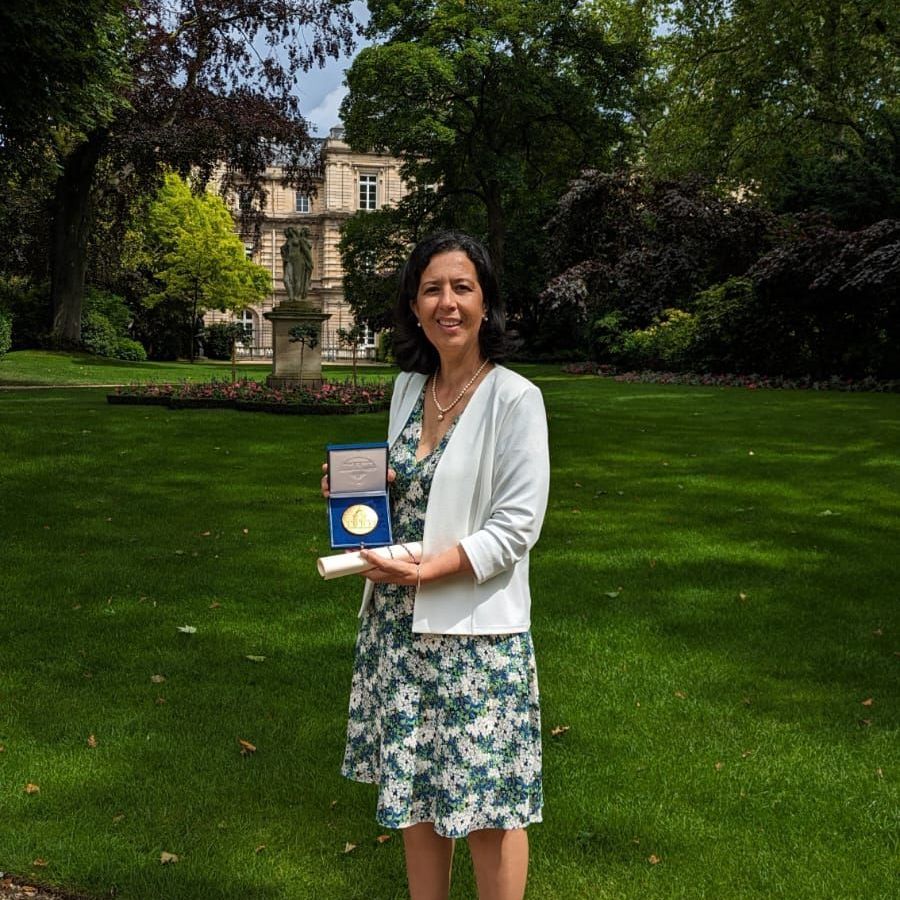
Ecologists Without Borders (EcoWB) is pleased to congratulate Board Member Dr. Sylvia Rivera Valle, who was recently awarded the Medal of the French Senate. The prestigious award was presented to Dr. Rivera by Mr. Gérard Larcher, President of the Senate, at Luxembourg Palace on May 30th, 2024, for her work in sustainable development. For over 25 years, Dr. Rivera has shared her expertise in sustainable development as a consultant to public sector agencies, non-governmental and non-profit organizations, international bodies, and private sector corporations. She is currently an expert auditor in fisheries management responsible for Marine Stewardship Council (MSC) certification, and she teaches at both Excelia Group, a higher education business and tourism school in France, and at EIGSI La Rochelle, one of the country’s four major private engineering schools. A dual citizen of Costa Rica and France, Dr. Rivera obtained her PhD in Management Science from La Rochelle University in France, following the award of a Master’s degree in Business Administration from the University of Costa Rica. The recent award of the Medal of the French Senate recognizes the immense body of work and admirable contributions of Dr. Rivera to the field of sustainable development, the human right of access to water and sanitation, sustainable fisheries management, and public policies for coastal areas. The award also recognizes her commitment to rural and indigenous Costa Rican territories and the linking of students with Costa Rican organizations and companies, promoting professional and cultural exchange. Dr. Rivera was presented with the award as part of France’s Latin American and Caribbean Weeks, which recognized the work of Latin Americans to unite France and the different countries of the region under the theme: “Together Facing Contemporary Challenges.” Congratulations to Dr. Sylvia Rivera Valle for this great recognition of her work and the contributions she continues to make to improve the environment and the lives of the people and communities touched by her work. To learn more about Dr. Rivera’s work, visit our Board of Directors page . To learn more about EcoWB and our mission to empower environmentally vulnerable communities worldwide, visit https://www.ecowb.org
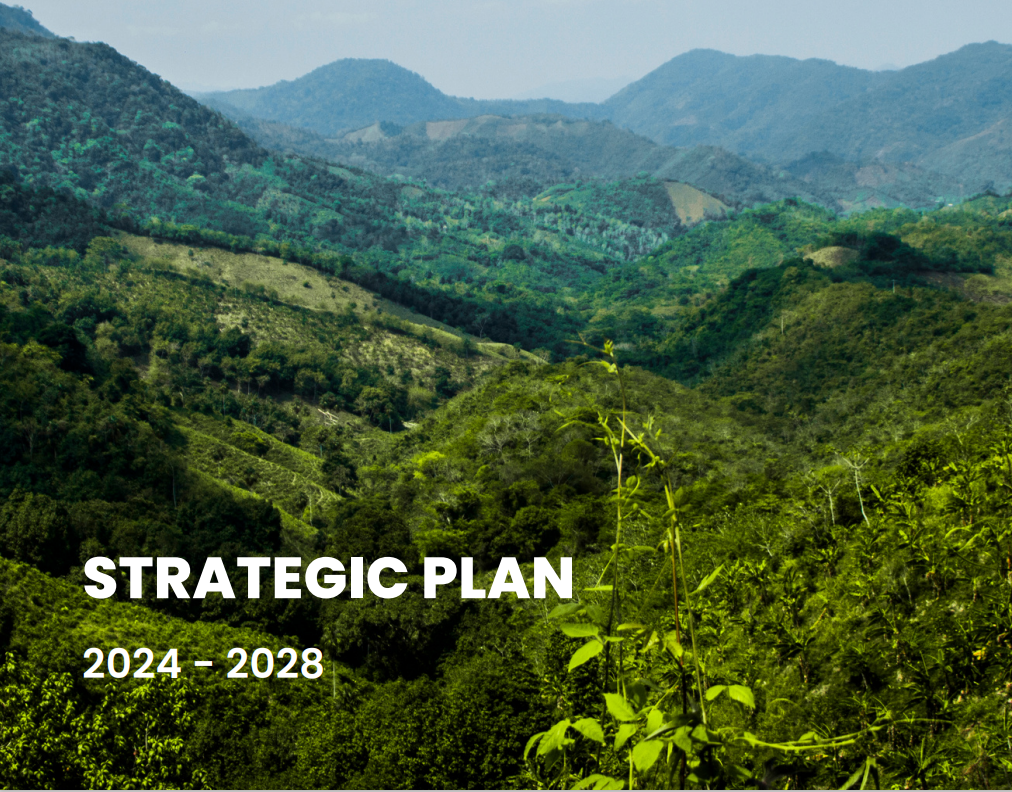
We are delighted to announce and share our Ecologists Without Borders strategic plan for the next five years, a period we see as pivotal in addressing global environmental challenges. Please take a few moments to read the plan to learn more about our commitment to empowering local communities and preserving ecosystems in an increasingly changing world. Our focus for the next five years will be three key areas: Strengthening Organizational Effectiveness: Building a robust operational framework to support our growing team and projects. Enhancing Volunteer Engagement: Expanding our network to include over 1000 active volunteers, deeply involved in our initiatives. Project Development: Launching accessible and impactful programs that are responsive to the needs of the communities we serve. By 2028, we aim to have a solid track record of successful projects and a vibrant volunteer network. Our vision extends to 2030, where EcoWB will be known as a global leader in community-driven environmental conservation. We invite you to join us on this exciting journey. Your participation, be it as a volunteer, partner, or donor, will make a significant difference. Please see our Get Involved page (https://www.ecowb.org/get-involved) to learn more. Together, let's create a future of flourishing ecosystems and empowered communities.


